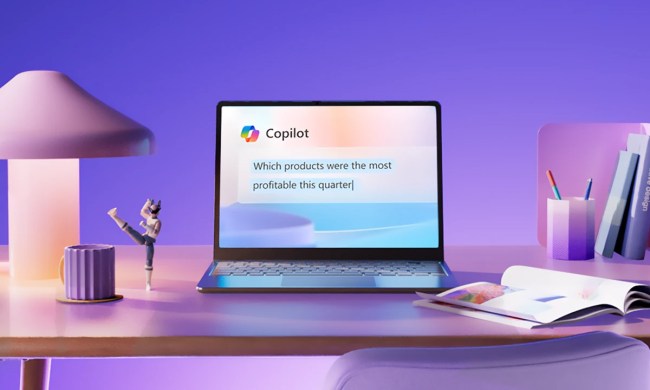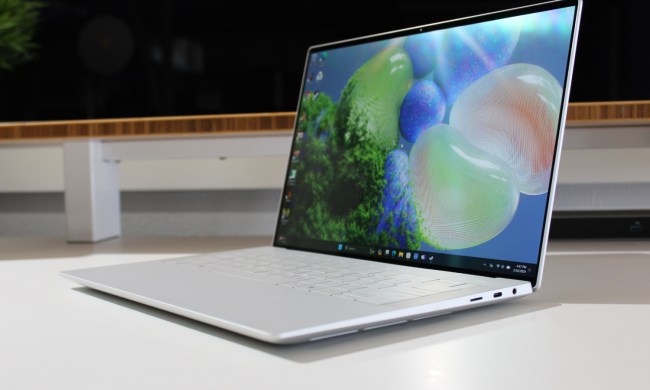
If you’re in the market for a VPN, you’ve probably considered ExpressVPN and NordVPN. They’re the darling of YouTube ads the world over, and you’ll commonly find the names side-by-side on top of the list of the best VPNs (including our own). They are indeed some of the best VPN services you can buy, but they aren’t necessarily the right choice for everyone.
Both are among the most expensive VPN services around, and in the case of NordVPN, a 2019 data center breach has left some lingering questions about the security of the service. Regardless of if you’re concerned about your security or just want to save a bit of money, here are five VPNs you should keep in mind. If you want to score a deal, make sure to keep our page of the best VPN deals handy.
Surfshark

If there’s a third big player in the world of VPNs, it’s Surfshark. The Netherlands-based service has slowly gained a foothold against ExpressVPN and NordVPN, and it comes in at the same price of $13 per month. It really gains stripes with generous multiyear offers, however. You can get two years of the service for only $60, which is less than the price that both NordVPN and ExpressVPN charge for a single year.
Surfshark comes with a few unique advantages as well. Most notably, it includes unlimited simultaneous connection. Both ExpressVPN and NordVPN limit your connections to five and six devices, respectively, but you can connect as many devices as you want with Surfshark. It supports just about any device you can throw it at, too, from your phone and laptop to an Apple TV — and with a dedicated app in tow.
In addition, Surfshark matches NordVPN’s unique double-hop feature. This allows you to connect to two servers in sequence, adding an extra layer of security (though at a pretty significant cost to speed). For most people, however, all you need to do is connect. Surfshark automatically chooses the fastest server near you and selects the VPN protocol with support for OpenVPN and Wireguard. You also get a kill switch to immediately cut your VPN connection in the event of a DNS leak and a range of static IP addresses to choose from.
The major downside of Surfshark is that there isn’t an easy way to try it for free, at least on your desktop. Surfshark has a seven-day free trial, but it’s only available on Android, iOS, and macOS — Windows users are out of luck.
Mullvad VPN

If you’re a security nut, Mullvad VPN is for you. It’s easy to get jaded by the YouTube sponsorships and affiliate programs of the larger VPN brands, but Mullvad doesn’t fuss around with any of that. There’s no affiliate program, and you’ve probably never seen Mullvad pop up in an YouTube ad. In fact, you don’t even need to enter your email to create an account — or provide any personal information for that matter — and you’re free to pay in cash or cryptocurrency.
It’s truly anonymous. Instead of your credit card and email, Mullvad works like a prepaid phone. You generate an account number on the Mullvad website and plug that number into your app. From there, you can add time to your account and pay however you wish. And yes, cash works. You can mail Mullvad your cash with a randomly generated payment token, and it even accepts a wide range of currencies.
The major downside of Mullvad is that it’s much more limited than some of the more well-known VPN brands. You only get a fraction of the servers available with services like NordVPN and ExpressVPN, and there aren’t any discounts for multiyear plans. Everyone pays the same price of 5 euros per month (about $5.50). If privacy is your concern above all else, however, it doesn’t get much better than Mullvad.
Proton VPN

Proton VPN is one of the few truly free options on the market. It comes from the same company that created Proton Mail, the encrypted email service that’s often used for sensitive communications, such as when journalists need to speak with sources. Proton VPN extends the security offerings of the company, and you can download and start using Proton VPN for free, no strings attached.
Mind, the free version of Proton VPN is extremely limited. Although you’re free to use Proton VPN for as long as you want, the free plan serves more as a trial. You only get one device, you’re limited to a handful of servers, and speeds are much slower. Still, you’re covered by the no-logs policy that Proton VPN maintains, and you don’t need to wrestle through ads on the free plan.
Paying up unlocks quite a bit, including support for 10 simultaneous connections, over 4,500 servers, double-hop connections, and even split tunneling. Split tunneling especially stands out, as that’s one of the key features of ExpressVPN. Split tunneling allows you to maintain a VPN connection, but only for some of your traffic. You can route sensitive traffic through the VPN tunnel while maintaining your normal internet connection for everything else. It’s particularly useful for external devices that use your local area network (LAN), such as printers.
Proton VPN is a bit cheaper than ExpressVPN and NordVPN, as well, coming in at around $10 per month. It really stands out with the Proton Unlimited plan for $13 per month, however. With an Unlimited plan, you get access to Proton Mail, Calendar, Drive, VPN, and Pass (a password manager), all of which are encrypted. You get some generous storage limits, too, with support for 500GB of encrypted storage and 25 calendars.
Cyberghost

Cyberghost isn’t any cheaper than ExpressVPN and NordVPN, but like Surfshark, it offers a generous multiyear discount. You can get two years for only $57, as well as four months of protection for free. Unlike most other VPNs, Cyberghost also gives you 45 days to get a refund if you don’t like the service. There’s even a free trial for Cyberghost, which gives you access to everything the service has to offer for a limited time (24 hours for Windows and macOS, three days for Android, and seven days for iOS).
The pricing really stands out for Cyberghost. Otherwise, it’s fairly similar to ExpressVPN and NordVPN. You have access to a massive number of servers — Cyberghost claims well over 7,000 — and you can install it on everything from your laptop to your router. VPN protocols like OpenVPN and Wireguard are available, as well, and Cyberghost maintains a no-logs policy that’s been independently audited. If there’s something Cyberghost really gains an edge, it’s device support — you can have up to seven simultaneous connections.
In addition, Cyberghost maintains a list of peer-to-peer (P2P) servers, similar to NordVPN. These are great for torrenting, if you find yourself doing that for any particular reason, and they’ll give you the fastest speeds on the notoriously slow P2P file sharing process.
Private Internet Access

Private Internet Access, or PIA, has been around for years, and in that time, it has amassed a dizzyingly large network. The service claims over 29,000 servers, spread across 140 locations in 91 countries, including servers in all 50 U.S. states. The vast majority of the locations support both OpenVPN and Wireguard as well, so you don’t need to fall back to a weaker VPN protocol when tunneling to an exotic location.
Although it’s not much cheaper than ExpressVPN and NordVPN, clocking in at $12 per month, PIA offers some unique upsides. It supports up to 10 simultaneous connections for starters, and it matches ExpressVPN and Proton VPN with a split tunneling feature. Similar to Mullvad, you also have anonymous payment options. PIA accepts gift cards with a one-time payment, and you can pay in cryptocurrency.
The biggest boon for PIA, however, is its open source code. The company hosts all of its code on GitHub, from the main VPN stack to features like split tunneling on Mac, and you’re free to dig through the code to spot any issues.



